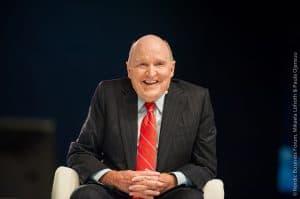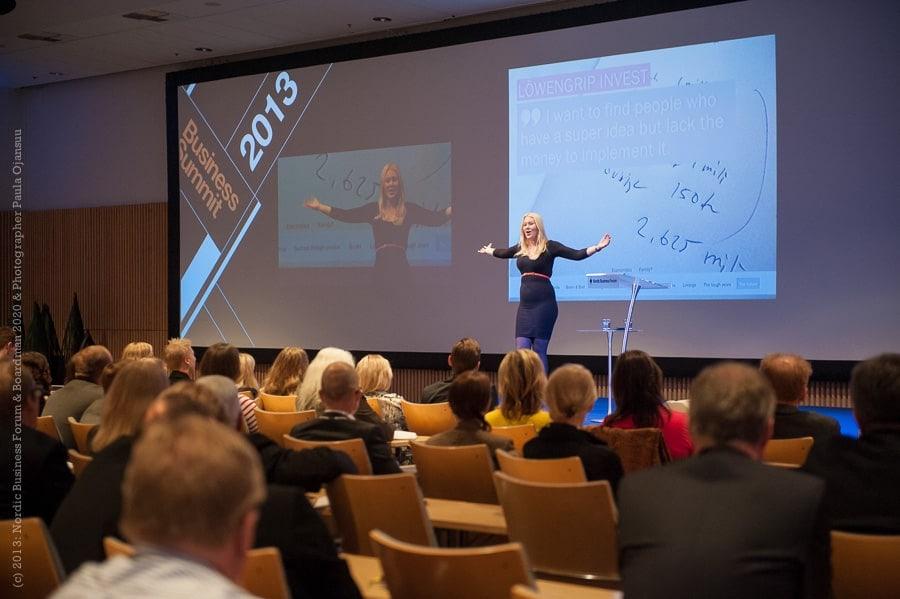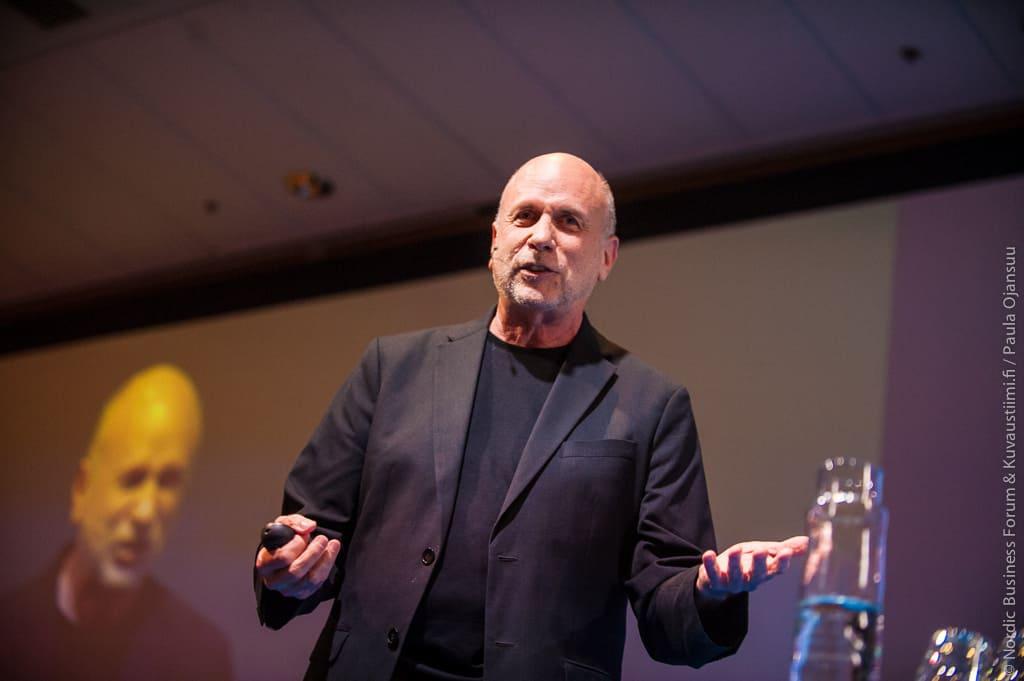21Aug2014
Sweaty Palms? Dry Throat? Sleepless Nights?
This might sound like an advert for a new pharmaceutical product, but the reality is that these are common reactions to that work related illness we all catch at one point in our lives – giving a presentation!
To ease your anxieties, we decided to give a call to three of the top five rated performers from the past events organized by Nordic Business Forum. These three were Isabella Löwengrip, Brian Tracy and Jack Welch.
Take a Daily Dose of Preparation
Every presenter agrees preparation is the most important aspect of a good talk, but each have different approaches. Isabella compares presenting to the job of a chef who, “has to try and taste the dinner before it is served – you have to practice and hear what you are going to say before you say it.” She recommends writing down everything you are going to say in your speech, reading it out loud to a friend, then throwing away the paper.
 “Preparation is key for professionals in any field, especially in public speaking,” remarks Brian. He warns that, “when you are not prepared you are like a fish out of water, you are gasping and reaching for information.” Brian spends 8 hours preparing for a 1 hour presentation, with enough subject information on each talk for two, three or even five hours. His best analogy is that he designs his talks “like an accordion,” so that he can expand or contract his speeches to finish on time.
“Preparation is key for professionals in any field, especially in public speaking,” remarks Brian. He warns that, “when you are not prepared you are like a fish out of water, you are gasping and reaching for information.” Brian spends 8 hours preparing for a 1 hour presentation, with enough subject information on each talk for two, three or even five hours. His best analogy is that he designs his talks “like an accordion,” so that he can expand or contract his speeches to finish on time.
Jack is a voracious reader and prepares for all his talks by brushing up on current affairs and reading up on the audience and place he is visiting. He is familiar with his hosts and their needs, not to mention those of the audience.
If Symptoms Persist, Talk to the Audience
Jack sees audience interaction as a priority. He doesn’t lecture and concentrates on questions as it allows him to engage with the audience. In this way he gets great feedback from audiences as they really feel he is responding to their needs. “It is more rewarding to me, and the reaction of audiences has been very positive around the world,” says Jack.
Contrary to Jack, Brian takes the opposite approach to Q&A, but still regards audience engagement as top of his list for a successful speech. He advises getting to know the audience, who they are and what information they are really able to use. He recommends connecting with the audience and says that, “the rule is to build a bridge of commonality.” He always advises to make the talk as personal as possible, almost as though you are talking to an individual. “Good public speaking is an enthusiastic conversation,” he quotes.
Isabella advocates being open and honest and allowing the audience to see who you really are. “I think that you have to be open if you want to inspire people, you have to tell about yourself and the mistakes you have made.”
Managing the Side Effects of Nerves
We all seem to get nervous about speaking in public, but every one of the speakers interviewed said this doesn’t have to be the case. “Usually I don’t get nervous because nervousness just gets in my way,” states Isabella, who feels a few nerves can often help her to focus. She cites two ways of dealing with nerves. One is to talk about stories related to you, which are easier to remember. The other is to try to visualise your talk beforehand and everything else going well on the day.
Brian says he has two advantages when it comes to public speaking. The first is that he loves his subject and the second is that he really cares about his audience. “The more you think about yourself the more nervous you become, so get out of yourself and start thinking about how you can help the audience.”
 Unsurprisingly Jack doesn’t get nervous, but does admit it’s easier to talk with a single company than to an entire forum. When talking to large audiences he tries to reference some of the initiatives his company is undertaking and again emphasises the need to focus on the audience and what they need.
Unsurprisingly Jack doesn’t get nervous, but does admit it’s easier to talk with a single company than to an entire forum. When talking to large audiences he tries to reference some of the initiatives his company is undertaking and again emphasises the need to focus on the audience and what they need.
Spontaneity is a Sign of a Healthy Condition
Good preparation will lead to increased relevance, organic improvisation and audience engagement. Here are some parting words of wisdom from our speakers:
Brian: “It’s very easy to improvise if your structure is clear, so spend a lot of time preparing and getting the structure right, [then you] can just relax.”
Jack: “You always want to be straight and very candid, no questions are out of bounds, talk clear and to the point.”
Isabella: “The most important thing though, is to have the courage and the self-belief to walk on that stage and try.”
 This article appeared on the August 2014 issue of Nordic Business Report. Read the full magazine here »
This article appeared on the August 2014 issue of Nordic Business Report. Read the full magazine here »


 by:
by: 